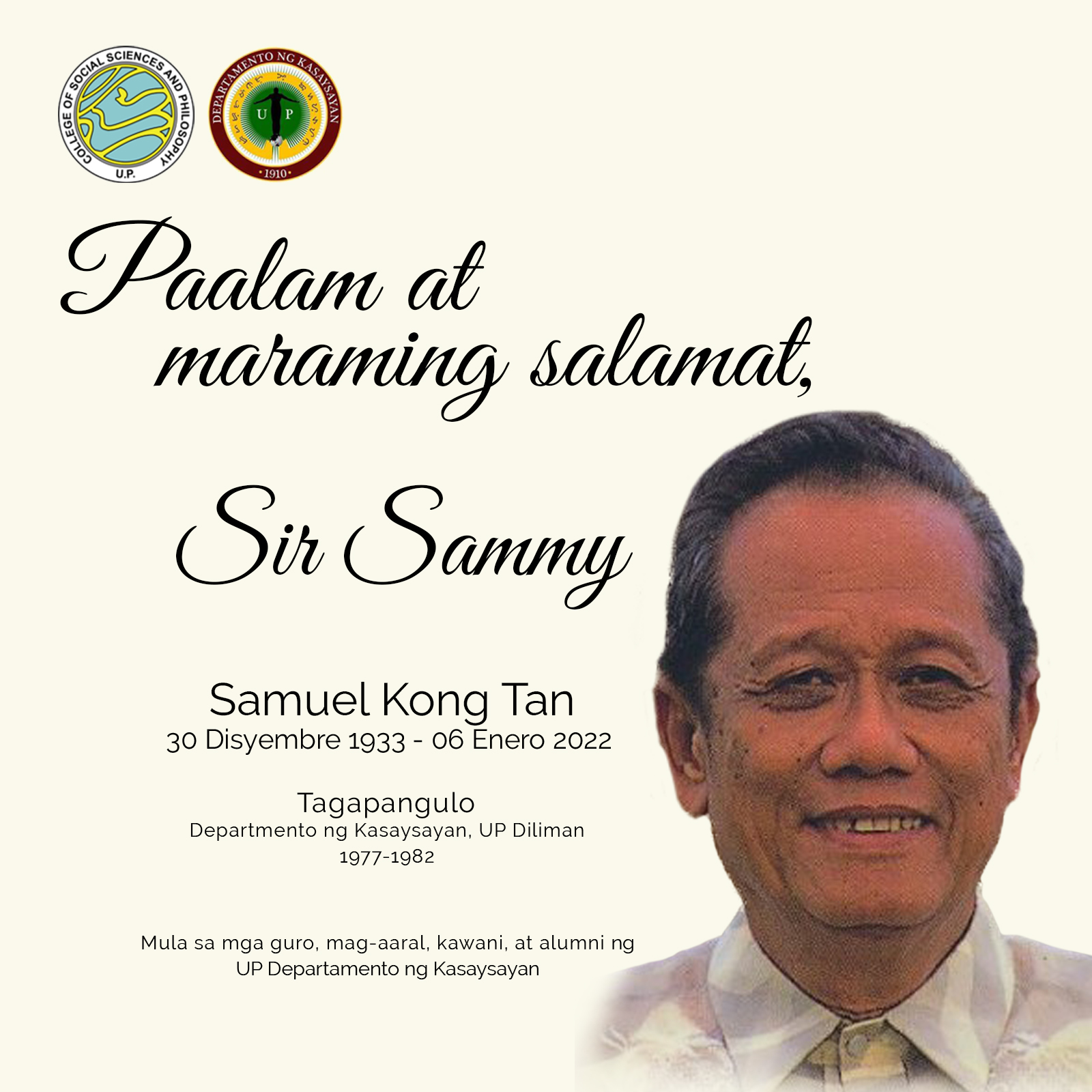Exactly a week after his 88th birthday, Prof. Samuel K. Tan, PhD, historian and expert on the role of Filipino Muslims in the history of the Philippines, passed away on Jan. 6.
Tan was chair of the UP Department of History from 1977 to 1982. During his term, the “Kapistahang Asyano” (Asian festival) was established in the University. He underscored the importance of doing research on oral and local history, which then paved the way for the launch of the International Conference on Oral and Local History in UP Diliman in 1979.

He taught in UP from 1963 to 1994. In 1994, Tan became the director and convenor of the Mindanao Studies Program of the UP Center for Integrative and Development Studies, a position he held until 2002.
Known as the leading expert on Filipino Muslims’ contributions to Philippine history, Tan was the chair of the National Historical Institute, now National Historical Commission of the Philippines, from 1997 to 1999.
Tan, who is known to family and friends as “Seng,” was described by Amina Rasul, president of the Philippine Center for Islam and Democracy, in her Facebook post on Jan. 6 as a “premiere historian of the Sulu archipelago, devoting his life not just to the study of history of the Philippines but the local history of his home province.”
Rasul went on to say on her post that Tan left a void no historian can fill.
“As a Tausug, (I) thank you Dr. Seng, for showing the world our heritage and the value we bring to the Philippines. You have left a void no historian can fill,” she said.
Among Tan’s works were “The Muslim South and Beyond” (2010), “Ferdinand E. Marcos and the Filipino Military Tradition” (2006), “Surat Sug: Letters of the Sultanate of Sulu” (2005), “Filipino Muslim Perceptions of their History and Culture” (2003), “The Filipino-American War, 1899-1913” (2002), “Internationalization of the Bangsamoro Struggle” (1993), “The Critical Decade, 1921-1930” (1993), “Decolonization and Filipino Muslim Identity” (1989), and “A History of the Philippines” (1987).
For his works and contributions, the Philippine National Historical Society honored Tan with a Lifetime Achievement Award for history in 2019.
Tan was also recipient of the National Commission for Culture and the Arts Distinguished Commissioner Award (1999), the UP Alumni Association Outstanding Award for History (1998), the UP Professorial Chair for History (1988), the Chiang Ching Kua Foundation research grant (1995), the Ford-Rockefeller grant (1993),and the Fulbright Hays research grant (1984), among others.
Born on Dec. 30, 1933 in Siasi, Sulu, Tan earned his PhD in social science from the Maxwell School of Citizenship and Public Affairs, Syracuse University in New York (1973), his master in history from UP (1967), and his AB in history, summa cum laude, from Zamboanga A.E. College (1963).According to Minda News (https://www.mindanews.com/top-stories/2022/01/sulus-samuel-tan-succumbs-to-covid-19-leaves-a-void-no-historian-can-fill/), Tan is survived by his three children, eight grandchildren, and five great-grandchildren.
